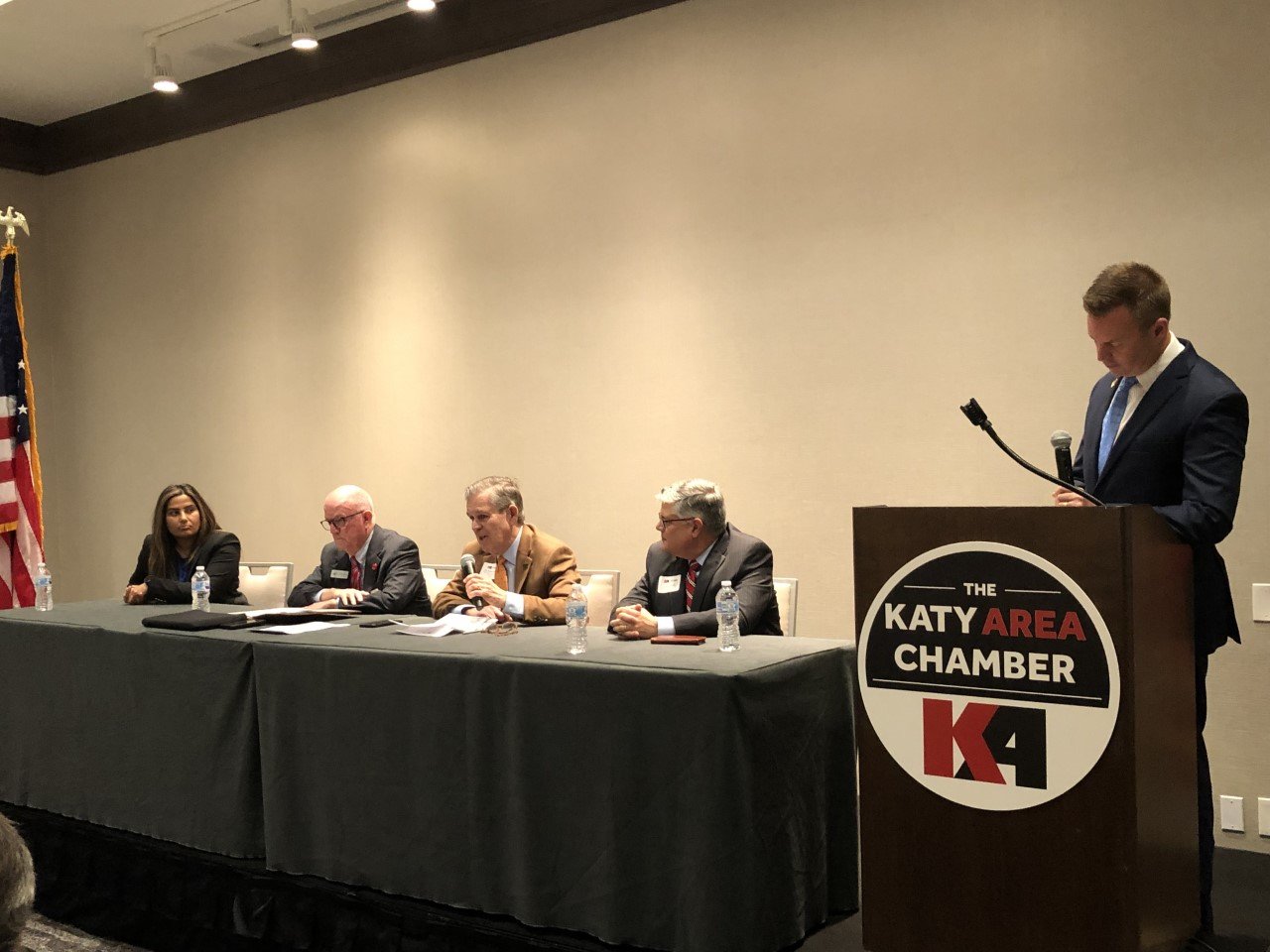College administrators discuss state of higher education in Katy
Students returning to Katy-area colleges face issues that require colleges—and the state—to be nimble, local education administrators said.
This item is available in full to subscribers.
Attention subscribers
To continue reading, you will need to either log in to your subscriber account, below, or purchase a new subscription.
Please log in to continue |
College administrators discuss state of higher education in Katy
Students returning to Katy-area colleges face issues that require colleges—and the state—to be nimble, local education administrators said.
Bob Glenn is president of the University of Houston-Victoria. Zachary Hodges is president of Houston Community College. Seelpa Keshvala is president of Lone Star College’s CyFair campus. Jay Neal is associate vice provost and chief operating officer at the University of Houston-Sugar Land and the University of Houston-Katy. The four participated in a Feb. 17 panel discussion hosted by the Katy Area Chamber of Commerce.
Issues like financial insecurity, food scarcity and a lack of child care for students are issues that colleges are working to address. In the case of food scarcity, Keshvala said each of the seven Lone Star College campuses have food pantries for students.
Having what Neal called “proper alignment” is important for student success. He said students often enter college unsure of what they want to do and are afraid of making a bad decision.
“People think they have only one chance,” Neal said. “They don’t know what they want to do and they are terrified of making a decision. They fear if they make a wrong decision, their life is shot.”
To deal with this issue, Neal said, students should think of their decisions in five-year increments. In other words, he said, what is the best decision for the next five years.
The pandemic has compelled a changing of the model for how schools provide the content the students need. Hodges said schools went from an environment of resistance to change to one of forced change. Now, he said, schools are being innovative in how they provide that coursework.
Glenn said the mark of a great university is its ability take a student from where he or she is and moves that student to where he or she needs to be. Community colleges must offer personalized learning pathways to their students, he said, because the way to master the educational issues facing students is to tackle them one student at a time.
Evolving times also required colleges to consider what programs to offer. Business, engineering, and nursing are among the most popular fields of study.
Keshvala said Lone Star College now offers bachelor’s degree programs in nursing, cybersecurity, and engineering/manufacturing. She said the college will soon offer another bachelor’s program in emergency management.
That her college is offering these programs is not to compete with the bachelor’s degree-granting institutions, she said. Instead, the college focuses on what programs are needed in the community. Hurricane Harvey and the pandemic helped persuade college officials to move forward with the emergency management program, she said.
Neal said the community colleges do not focus on the top 10 percent high school, but about the 100% of students enrolled at the time.
“The whole economy of the state of Texas depends on us getting this right,” Neal said.
Keywords
HCC, UH-Victoria at Katy, UH Katy, Lone Star College, Katy Area Chamber of Commerce






